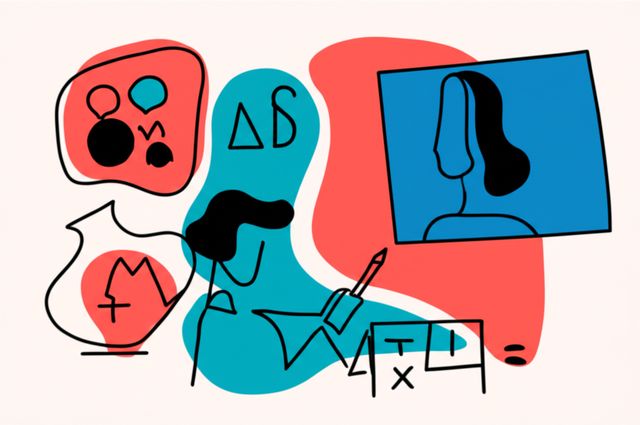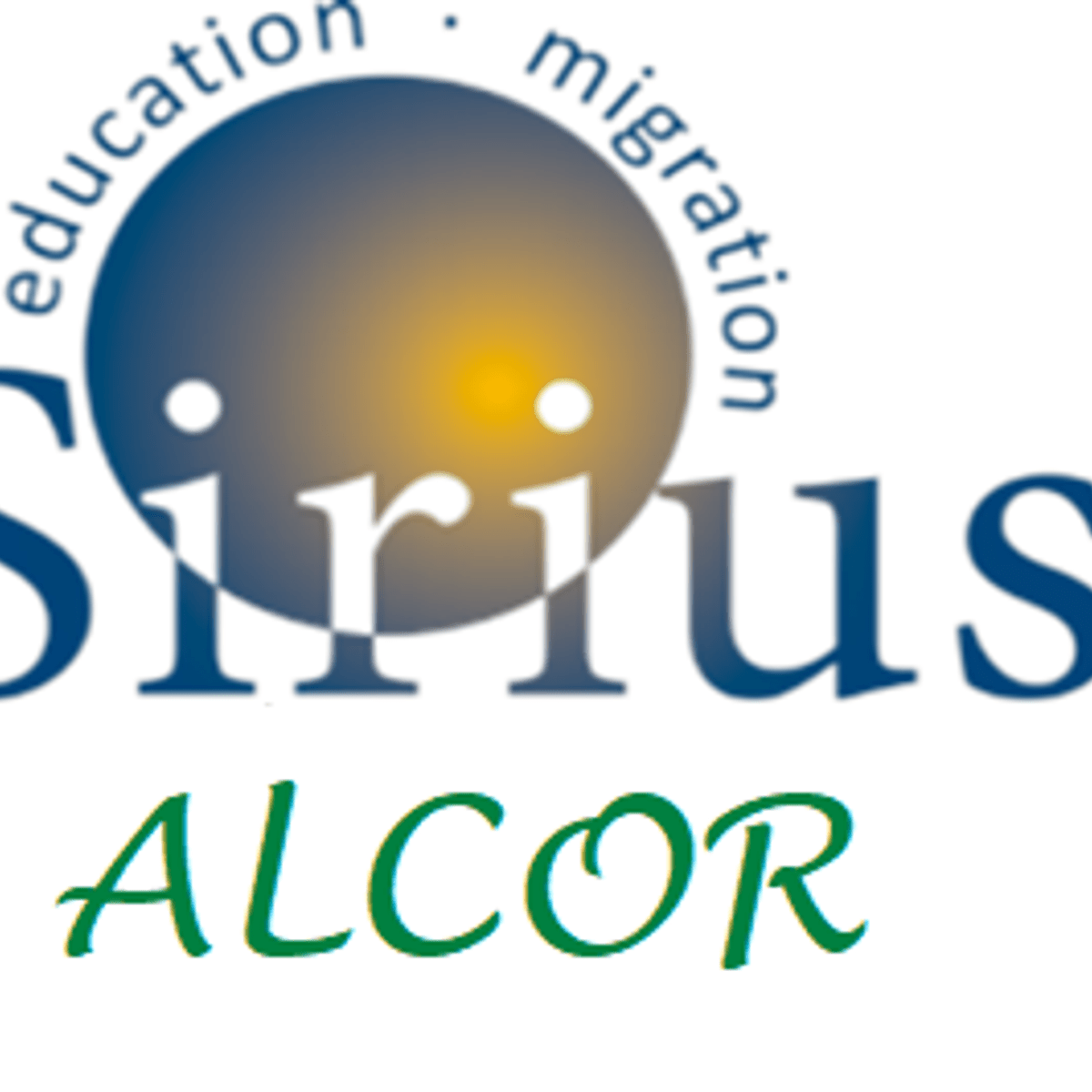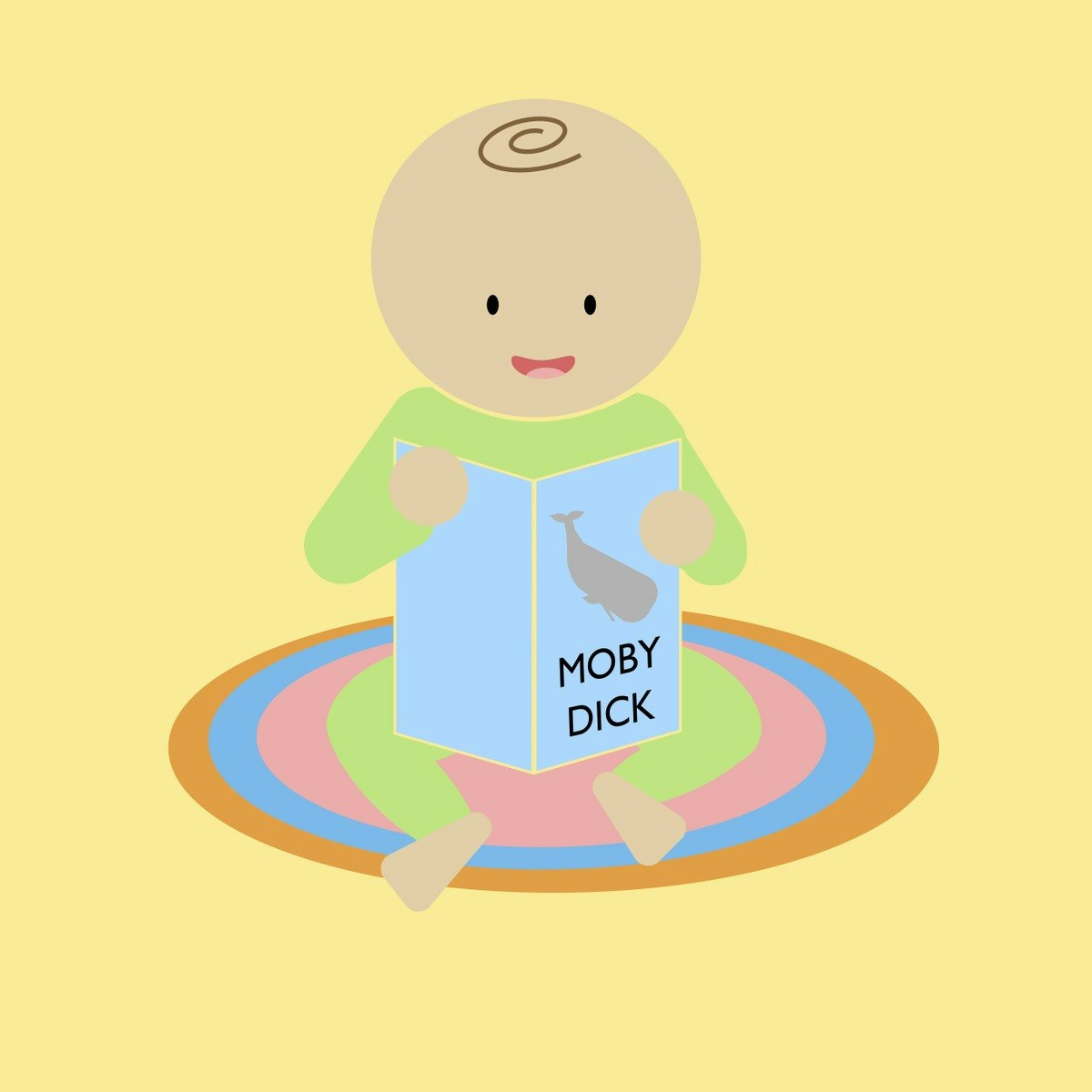Language Arts Teacher
Language Arts Teacher
A Language Arts Teacher guides students in mastering reading, writing, speaking, and listening. They help learners understand literature, analyze texts, craft clear communication, and develop critical thinking abilities. This role is fundamental in shaping how individuals interact with language and make sense of the world around them.
Working as a Language Arts Teacher can be deeply rewarding. You have the opportunity to ignite a passion for literature, empower students with strong communication skills, and witness their intellectual growth firsthand. It's a career path suited for those who love language and enjoy fostering that appreciation in others.
What Does a Language Arts Teacher Do?
Language Arts Teachers are educators specializing in the components of language, literacy, and communication. They work with students to develop proficiency in reading comprehension, written expression, grammar, vocabulary, spelling, and effective speaking and listening.
Defining the Role and Scope
The primary duty of a Language Arts Teacher is to design and deliver instruction that covers the broad spectrum of language arts. This includes selecting appropriate literary texts, teaching grammatical concepts, guiding writing processes, and facilitating discussions that enhance understanding and analytical skills. They assess student progress through assignments, tests, and projects, providing feedback to foster improvement.
These educators create lesson plans aligned with curriculum standards and tailor instruction to meet the diverse needs of their students. They manage classroom dynamics, foster a positive learning environment, and often communicate with parents or guardians about student progress. The scope extends beyond teaching grammar rules; it involves nurturing a lifelong appreciation for language and its power.
Language Arts instruction helps students become more effective communicators, critical thinkers, and informed citizens. By exploring different genres of literature and practicing various forms of writing, students learn to articulate their thoughts, understand different perspectives, and engage thoughtfully with complex ideas. This foundation is crucial for success in higher education and future careers.
Exploring Core Subjects
Literature forms a cornerstone of the language arts curriculum. Teachers introduce students to various genres, including fiction, non-fiction, poetry, and drama. Through analyzing literary works, students explore themes, characters, plot structures, and stylistic devices, deepening their comprehension and appreciation.
Writing instruction is another critical component. Teachers guide students through the writing process, from brainstorming and outlining to drafting, revising, and editing. Instruction covers different writing styles, such as narrative, persuasive, expository, and descriptive writing, equipping students to express themselves clearly and effectively for various purposes and audiences.
Grammar, usage, and mechanics (punctuation, capitalization, spelling) are explicitly taught to ensure students develop accuracy and clarity in their communication. Understanding these conventions allows students to construct well-formed sentences and coherent paragraphs, making their writing and speaking more precise and professional.
Here are some books that cover essential grammar concepts often taught by Language Arts Teachers.
Typical Work Environments
Most Language Arts Teachers work in K-12 public or private school settings. Elementary teachers often cover language arts as part of a broader curriculum, while middle and high school teachers typically specialize in English Language Arts (ELA). Their classrooms become spaces for discussion, reading, writing workshops, and collaborative learning.
Beyond traditional K-12 schools, opportunities exist in adult education programs, community colleges, or tutoring centers. Some Language Arts Teachers may specialize in areas like English as a Second Language (ESL) or remedial reading instruction, working with specific student populations.
The setting influences daily routines and responsibilities. High school teachers, for instance, might focus more on preparing students for college-level academics or standardized tests, while elementary teachers focus on foundational literacy skills. Regardless of the setting, the core mission remains fostering language proficiency and appreciation.
Fostering Critical Thinking and Communication
Language Arts education is pivotal in developing students' critical thinking skills. Analyzing literature requires students to interpret texts, evaluate arguments, identify biases, and understand different perspectives. Discussing complex ideas and constructing written arguments hones their ability to think logically and analytically.
Effective communication is a direct outcome of strong language arts instruction. Students learn to articulate their ideas clearly and persuasively in writing and speech. They practice active listening and respectful dialogue during class discussions, essential skills for collaboration and civic engagement.
By engaging with diverse texts and perspectives, students broaden their understanding of the world and human experience. Language Arts Teachers facilitate this exploration, encouraging empathy and nuanced thinking. They empower students not just to consume information, but to critically evaluate and respond to it effectively.
Formal Education Pathways
Pursuing a career as a Language Arts Teacher typically involves specific educational steps, including earning a relevant bachelor's degree and obtaining state licensure. Advanced degrees can open doors to specialized roles or leadership positions.
Bachelor’s Degree Essentials
A bachelor's degree is the standard minimum requirement for becoming a K-12 Language Arts Teacher in the United States. Common majors include English, Literature, or Education with a concentration in English or Language Arts. These programs provide deep subject matter knowledge and foundational pedagogical understanding.
Coursework typically covers literary analysis, writing composition, linguistics, grammar, and communication studies. Education-focused programs also include courses on child development, learning theories, classroom management, and teaching methodologies specific to language arts instruction.
Accreditation is important. Ensure the bachelor's degree program is offered by a regionally accredited college or university, as this is often a prerequisite for state certification and further graduate studies. Many programs incorporate fieldwork or observation hours in actual classrooms.
Consider these books for insights into teaching language arts effectively.
Navigating State Teaching Certifications
Public school teachers in all states must obtain a teaching license or certification. Requirements vary significantly by state but generally include completing an approved teacher preparation program, passing background checks, and achieving passing scores on standardized teaching exams.
Common exams include basic skills tests (reading, writing, math) and subject-specific assessments for English Language Arts. Many states use the Praxis series of tests. Prospective teachers should research the specific requirements for the state where they intend to teach early in their academic journey.
Alternative certification pathways exist for individuals who hold a bachelor's degree in a field other than education. These programs offer accelerated routes to licensure, often involving intensive coursework and supervised teaching experience. Checking your state's Department of Education website provides the most current information.
For example, the Texas Education Agency outlines its requirements, which include a bachelor's degree, an educator preparation program, exams, an application, and fingerprinting. Requirements in other states, like Washington, also involve specific testing like the WEST-B basic skills test and subject area tests.
Exploring Master’s Programs
While not always required for initial certification, a master's degree (e.g., M.A. in English, M.Ed. in Curriculum & Instruction, M.A.T. - Master of Arts in Teaching) can enhance career prospects. It may lead to higher salaries, opportunities for leadership roles (like department head or literacy coach), or the ability to teach at the community college level.
Master's programs allow for specialization in areas such as reading instruction, literature, composition studies, or educational technology. This advanced knowledge can deepen teaching practice and qualify educators for roles requiring specialized expertise, such as curriculum development.
Some states require teachers to earn a master's degree within a certain number of years after obtaining their initial license to maintain certification. Even if not mandated, pursuing graduate studies demonstrates a commitment to professional growth and can be personally and professionally fulfilling.
The Importance of Student Teaching
Student teaching, often called a practicum or internship, is a critical component of nearly all teacher preparation programs. It provides hands-on experience in a real classroom under the supervision of an experienced mentor teacher and a university supervisor.
During this period, aspiring teachers apply pedagogical theories learned in coursework, practice lesson planning and delivery, manage classroom routines, assess student learning, and engage with the school community. It's an immersive experience that bridges theory and practice.
Successful completion of student teaching is typically required for program completion and state licensure. It's an invaluable opportunity to refine teaching skills, build confidence, receive constructive feedback, and begin developing a professional network before entering the job market.
Online Learning and Skill Development
Beyond formal degree programs, online platforms offer valuable resources for aspiring and current Language Arts Teachers to hone their skills, explore new pedagogical approaches, and stay current in the field.
Digital Platforms for Pedagogy Training
Online courses and platforms provide flexible ways to learn about effective teaching strategies. You can find modules on differentiated instruction, assessment design, integrating technology, and classroom management techniques tailored for language arts classrooms.
Many universities and professional organizations offer online workshops or professional development courses. These can supplement formal education or provide continuing education credits needed for license renewal. Platforms like OpenCourser allow you to browse courses in Education and related fields easily.
Learning online allows educators to study at their own pace and access expertise from around the globe. It's particularly useful for exploring innovative teaching methods or tools that might not be covered extensively in traditional programs.
These courses offer insights into teaching methodologies and foundational principles relevant to language instruction.
Micro-credentials in Literacy Instruction
Micro-credentials or digital badges offer focused validation of specific skills within literacy instruction. These might cover topics like teaching phonics, supporting struggling readers, digital literacy, or teaching writing genres.
Earning micro-credentials can demonstrate specialized expertise to potential employers or contribute to professional development goals. They often involve practical application, requiring educators to submit evidence of their practice, such as lesson plans or student work samples.
These credentials provide a way to build a portfolio of skills incrementally. They are often more targeted and less time-consuming than pursuing a full degree, making them accessible options for busy educators seeking specific skill enhancement.
Virtual Classroom Management Strategies
With the rise of online and hybrid learning environments, mastering virtual classroom management is increasingly important. Online courses can teach strategies for engaging students remotely, facilitating online discussions, utilizing digital collaboration tools, and maintaining a positive virtual learning atmosphere.
Understanding how to adapt traditional classroom management techniques for online settings is key. This includes setting clear expectations for online behavior, managing participation in synchronous sessions, and designing asynchronous activities that promote student engagement and accountability.
Developing proficiency in learning management systems (LMS) and other educational technologies is crucial for effective virtual teaching. Online training can provide practical skills in using these tools to organize content, track progress, and communicate with students and families.
This course focuses on using technology effectively with English Language Learners.
Creating Teaching Portfolios via Self-Driven Projects
Developing a professional teaching portfolio is essential for showcasing skills and experience. Online learning can support this process through project-based courses or by providing tools and inspiration for self-directed projects.
Learners can create sample lesson plans, develop assessment tools, design instructional units, or record teaching demonstrations based on concepts learned in online courses. These artifacts serve as concrete evidence of competence for job applications or performance reviews.
Platforms like OpenCourser feature tools like "Save to List" (manageable here) which can help organize resources and inspiration for portfolio projects. Engaging in self-driven projects allows educators to tailor their portfolio to specific interests or job requirements, demonstrating initiative and practical skill application.
These capstone projects provide opportunities to apply learned skills and create portfolio-worthy materials.
Career Progression for Language Arts Teachers
A career as a Language Arts Teacher offers various avenues for growth and advancement, both within the classroom and in related educational roles.
Entry-Level Opportunities
New graduates often begin their careers as classroom teachers in middle or high schools. Some may start as long-term substitutes or teaching assistants to gain experience before securing a full-time position. Tutoring, either privately or through centers, is another common entry point.
Initial years focus on honing classroom management skills, refining instructional techniques, and becoming familiar with school culture and curriculum. Building strong relationships with students, colleagues, and parents is crucial during this phase.
Entry-level salaries vary based on location, school district funding, and the teacher's qualifications. According to ZipRecruiter data as of April 2025, the average annual pay for a Language Arts Teacher in the US is around $54,168, with starting salaries potentially lower.
Advancing to Leadership Roles
Experienced Language Arts Teachers can pursue leadership opportunities within their schools or districts. Becoming a department chair or lead teacher involves mentoring colleagues, coordinating curriculum across grade levels, and contributing to school improvement initiatives.
These roles often require additional qualifications, such as a master's degree or specific leadership training. They offer increased responsibility and influence over instructional practices, along with potentially higher compensation.
Leadership positions allow teachers to impact education on a broader scale while often maintaining some connection to classroom teaching. It's a natural progression for those passionate about both language arts instruction and educational leadership.
Transitioning to Curriculum Development
Teachers with strong pedagogical knowledge and subject matter expertise may transition into curriculum development roles. Curriculum specialists or instructional coordinators design, evaluate, and implement educational programs and materials for schools or districts.
This often requires advanced coursework or a master's degree focusing on curriculum and instruction. These professionals work to ensure curricula are aligned with standards, research-based, engaging, and meet the needs of diverse learners.
This path allows educators to leverage their classroom experience to shape the learning experiences of many students. It involves research, collaboration with teachers and administrators, and staying abreast of educational trends and best practices.
Opportunities in Higher Education
With advanced degrees (typically a Master's or Ph.D. in English, Rhetoric, Composition, or a related field), Language Arts Teachers can transition to teaching at the postsecondary level. This includes community colleges, four-year universities, and graduate programs.
Roles in higher education often involve teaching composition courses, literature surveys, or specialized seminars. University positions may also include research responsibilities and scholarly publication expectations.
According to the U.S. Bureau of Labor Statistics, the median annual wage for postsecondary teachers was $84,380 in May 2023, though this varies greatly by institution type and field. Teaching at this level offers the opportunity to engage with students pursuing deeper academic study in language and literature.
Essential Skills for Language Arts Instruction
Effective Language Arts Teachers possess a unique blend of subject matter expertise, pedagogical skills, and interpersonal qualities to engage students and foster literacy development.
Mastering Multimodal Communication
Modern language arts instruction goes beyond traditional reading and writing. Teachers need skills in multimodal communication, incorporating visual elements, audio, video, and digital texts into lessons. This reflects how communication occurs in the 21st century.
Instruction should help students analyze and create meaning across different modes. This could involve analyzing film adaptations of literature, creating multimedia presentations, or evaluating the credibility of online sources. Proficiency in using and teaching various communication technologies is essential.
Teachers must guide students in understanding how different modes convey meaning and how to choose the appropriate mode for a specific purpose and audience. This requires adaptability and a willingness to explore new forms of expression and analysis.
Implementing Differentiated Instruction
Classrooms are diverse, with students possessing varied learning styles, abilities, interests, and backgrounds. Differentiated instruction involves tailoring teaching methods, materials, and assessments to meet individual student needs, ensuring all learners can access the curriculum and succeed.
Language Arts Teachers use differentiation strategies like flexible grouping, providing choices in reading materials or writing assignments, offering tiered activities, and adjusting complexity levels. This requires ongoing assessment to understand student strengths and areas for growth.
Effectively differentiating instruction requires creativity, flexibility, and a deep understanding of both the subject matter and student development. It aims to maximize learning for every student by providing appropriate levels of challenge and support.
These courses address working with diverse learners, including English Language Learners (ELLs).
Designing Assessments and Grading Systems
Assessment is crucial for monitoring student progress and informing instruction. Language Arts Teachers design various assessments, including traditional tests and quizzes, essays, projects, presentations, and portfolios, to measure understanding of concepts and skills.
Developing clear rubrics and grading criteria is essential for providing meaningful feedback and ensuring fairness. Teachers must be skilled in evaluating complex work like essays or creative writing, focusing on both content and mechanics while encouraging growth.
Effective assessment goes beyond assigning grades; it involves using data to identify learning gaps, adjust teaching strategies, and provide targeted support to students. Balancing formative (ongoing) and summative (end-of-unit) assessments provides a comprehensive picture of student learning.
This course focuses specifically on assessment strategies for English Language Learners.
Embracing Digital Literacy
In today's world, digital literacy is as fundamental as traditional literacy. Language Arts Teachers must be proficient in using digital tools for instruction, communication, and assessment. They also need to teach students how to navigate, evaluate, and create digital content responsibly.
This includes teaching skills like evaluating online source credibility, understanding digital citizenship and online safety, using collaborative digital tools for writing and projects, and analyzing digital media. Integrating technology effectively enhances learning and prepares students for future demands.
Teachers should model responsible and effective technology use and guide students in becoming critical consumers and creators in digital environments. Staying current with relevant educational technologies and digital trends is an ongoing aspect of the role.
Challenges in Language Arts Education
While rewarding, teaching language arts comes with unique challenges that require resilience, creativity, and effective strategies to navigate.
Addressing Diverse Learning Needs
Meeting the wide range of learning needs, abilities, and backgrounds within a single classroom is a significant challenge. Students may have varying reading levels, language proficiencies (including English Language Learners), learning disabilities, or levels of engagement.
Effective differentiation requires careful planning, ongoing assessment, and flexibility, which can be demanding. Providing individualized support while managing a whole class requires strong organizational and classroom management skills.
Collaboration with special education teachers, ESL specialists, and support staff is often necessary but can be limited by resource constraints. Finding ways to ensure equitable access and success for all students remains a primary challenge.
Balancing Standards and Creativity
Language Arts Teachers often face pressure to prepare students for standardized tests, which may emphasize specific skills or formats. Balancing these requirements with fostering genuine creativity, critical thinking, and a love for literature can be difficult.
Curriculum constraints and pacing guides can sometimes limit the time available for in-depth exploration, creative projects, or student-driven inquiry. Teachers must find innovative ways to integrate creative expression and deep analysis within the required framework.
Advocating for authentic learning experiences that go beyond test preparation is important. This involves finding ways to make required content engaging and relevant while still carving out space for more open-ended, creative work.
Managing Grading Workloads
Providing meaningful feedback on student writing is essential but incredibly time-consuming. Grading essays, research papers, and other assignments for potentially large numbers of students represents a substantial workload for Language Arts Teachers.
Finding efficient yet effective grading strategies is crucial for managing time and avoiding burnout. This might involve using focused rubrics, prioritizing feedback on key areas, employing peer review activities, or utilizing digital grading tools.
Balancing the need for thorough feedback with workload demands requires careful time management and strategic planning. It's a persistent challenge inherent in teaching a subject centered on written expression.
Adapting to Evolving Literacy Standards
Definitions of literacy are constantly evolving, particularly with the influence of digital technologies. Teachers need to adapt their instruction to encompass new forms of communication, digital literacy skills, and changing expectations for reading and writing.
Keeping up with research on effective literacy instruction, changes in curriculum standards (like the Common Core), and new technologies requires ongoing professional development and a commitment to lifelong learning.
Integrating new standards and approaches while maintaining a coherent and engaging curriculum requires thoughtful planning and adaptation. Teachers must be prepared to continually refine their practice to meet the changing landscape of language and literacy.
Language Arts Teacher in the Modern Job Market
Understanding the employment landscape, including demand trends and influencing factors, is important for those considering or pursuing a career as a Language Arts Teacher.
Demand Trends Across Sectors
The demand for teachers, including those specializing in language arts, varies by region, grade level, and whether the position is in a public or private school. According to the U.S. Bureau of Labor Statistics (BLS), overall employment for high school teachers is projected to grow, though growth rates can fluctuate.
Certain areas, particularly rural and lower-income urban communities, may experience higher demand. Shortages might also exist for teachers qualified to work with specific populations, like English Language Learners or students with disabilities.
Private schools have different hiring cycles and requirements than public schools. Researching specific geographic areas and school types provides a clearer picture of local demand.
Impact of Educational Funding and Policies
School budgets, often tied to state and local funding, significantly impact hiring decisions. Economic downturns or shifts in educational policy can affect the number of available teaching positions and resources allocated to language arts programs.
Emphasis on STEM (Science, Technology, Engineering, Math) fields in recent years has sometimes led to concerns about resource allocation for humanities subjects like language arts. However, the foundational importance of literacy and communication skills ensures continued relevance.
Staying informed about educational policy debates and funding initiatives at the local, state, and national levels helps teachers understand the broader context influencing their profession.
Geographic Variations in Opportunities
Job opportunities and salaries for Language Arts Teachers can differ substantially based on geographic location. Some states or districts may offer higher salaries or face greater teacher shortages than others.
Cost of living also varies significantly, impacting the real value of a teacher's salary. Researching average salaries and job market conditions in specific states or metropolitan areas is crucial for career planning.
Factors like population growth, state education budgets, and local district priorities all contribute to these geographic variations. Flexibility in location can sometimes open up more employment opportunities.
Emerging Hybrid and Online Teaching Models
The rise of educational technology has led to an increase in hybrid (blended) and fully online teaching positions. While still less common than traditional classroom roles, these models offer different working environments and require specific skill sets.
Teaching effectively online requires proficiency in digital tools, strategies for virtual student engagement, and different approaches to assessment and communication. Some teachers prefer the flexibility these models offer, while others thrive in face-to-face settings.
As technology continues to evolve, the landscape of teaching is likely to include more diverse models. Developing skills in online pedagogy can broaden career options for Language Arts Teachers.
This course focuses specifically on the skills needed for teaching English online.
Transferable Skills from Language Arts Teaching
The skills developed as a Language Arts Teacher are highly valuable and transferable to a wide range of careers beyond the traditional classroom.
Communication Training Across Industries
Language Arts Teachers excel at explaining complex ideas clearly, tailoring communication to different audiences, and providing constructive feedback – skills highly sought after in corporate training, professional development, and communications roles.
Experience in teaching writing, grammar, and presentation skills translates directly to developing and delivering workshops or coaching professionals on effective communication. Many organizations value individuals who can improve the communication abilities of their workforce.
The ability to design engaging instructional materials and facilitate group discussions are also transferable assets for roles in learning and development or human resources.
Curriculum Design for Corporate Settings
The skills involved in designing lesson plans, instructional units, and assessments are directly applicable to corporate instructional design or curriculum development roles. Companies need professionals who can create effective training programs for employees.
Understanding learning principles, sequencing content logically, and creating engaging activities are core competencies shared by teachers and corporate trainers. Experience with educational technology is also a significant advantage.
Transitioning into this field might involve learning specific corporate training software or methodologies, but the foundational skills acquired through teaching provide a strong starting point.
Analytical Writing for Various Fields
Expertise in analyzing texts, constructing arguments, and writing clearly and persuasively is valuable in fields like technical writing, grant writing, editing, publishing, marketing, and public relations.
Language Arts Teachers possess strong research, critical thinking, and writing skills honed through analyzing literature and guiding student writing. They are adept at synthesizing information and presenting it coherently.
These analytical and writing abilities are fundamental to many roles that involve creating reports, proposals, marketing copy, or other professional documents requiring precision and clarity.
Leadership Through Classroom Management
Successfully managing a classroom requires strong leadership, organization, conflict resolution, and interpersonal skills. Teachers learn to motivate diverse groups, set clear expectations, manage time effectively, and handle challenging situations calmly.
These leadership competencies are transferable to management or supervisory roles in various sectors. Experience in guiding student groups, facilitating discussions, and fostering a positive environment translates well to team leadership and project management.
The ability to build rapport, communicate effectively with different stakeholders (students, parents, colleagues), and make decisions under pressure are all hallmarks of effective leadership developed through teaching.
Frequently Asked Questions
Here are answers to some common questions about becoming and working as a Language Arts Teacher.
What are typical salary ranges?
Salaries for Language Arts Teachers vary widely based on location, experience, education level (Bachelor's vs. Master's), and type of school (public vs. private). As of April 2025, ZipRecruiter reported an average annual salary of $54,168 in the US, with ranges generally falling between $46,000 and $61,000. Zippia reported a similar average of $48,483. Higher salaries are often found in states with higher costs of living or in districts with strong union contracts. Negotiation strategies often involve highlighting experience, advanced degrees, and specialized skills.
Are there remote teaching opportunities?
Yes, remote or online teaching opportunities for Language Arts exist, particularly through virtual schools, online tutoring platforms, and some traditional districts offering online programs. However, these positions are generally less numerous than traditional classroom roles. Remote teaching requires strong digital literacy skills, proficiency with online learning platforms, and specific strategies for engaging students virtually. Limitations can include challenges in building student rapport and managing technology access issues.
Is certification transferable between states?
Teaching certification reciprocity between states varies. While many states have agreements to recognize licenses from other states, there are often additional requirements, such as passing specific state exams or completing coursework on state history or regulations. It's crucial to check the specific reciprocity rules of the state's Department of Education where you plan to teach. Organizations like the National Association of State Directors of Teacher Education and Certification (NASDTEC) facilitate interstate agreements, but direct verification with the target state is always recommended.
How can teachers prevent burnout?
Teaching can be demanding, and burnout is a real concern. Prevention strategies include setting clear boundaries between work and personal life, seeking support from colleagues or mentors, practicing effective time management to handle workloads (especially grading), and engaging in regular self-care activities. Continuously seeking professional development can keep teaching fresh and engaging. Maintaining a strong sense of purpose and focusing on the positive impact on students can also help sustain motivation.
Should I specialize by subject or grade level?
Specialization often happens naturally based on the teaching license obtained (e.g., secondary English vs. elementary education). Within secondary ELA, teachers might develop deeper expertise in areas like literature, composition, creative writing, or journalism, sometimes leading specialized courses. Choosing between middle school and high school depends on personal preference regarding student developmental stages and curriculum focus. Elementary teachers are typically generalists but may develop strengths in literacy instruction.
How does one transition from a corporate role to teaching?
Career changers with bachelor's degrees can pursue alternative certification programs, which provide accelerated pathways to teaching licensure. These programs typically involve intensive pedagogy coursework and supervised teaching practice. Highlighting transferable skills from the corporate world (e.g., communication, project management, subject matter expertise if relevant) can be advantageous. Researching state-specific alternative routes and connecting with program advisors is the first step. It's a significant shift, so understanding the realities of the classroom environment is important.
Embarking on a career as a Language Arts Teacher is a commitment to fostering literacy, critical thinking, and effective communication in students. While challenging, it offers the profound reward of shaping young minds and instilling a lifelong appreciation for the power of language. With dedication, continuous learning, and a passion for the subject, you can build a fulfilling career impacting countless lives.














